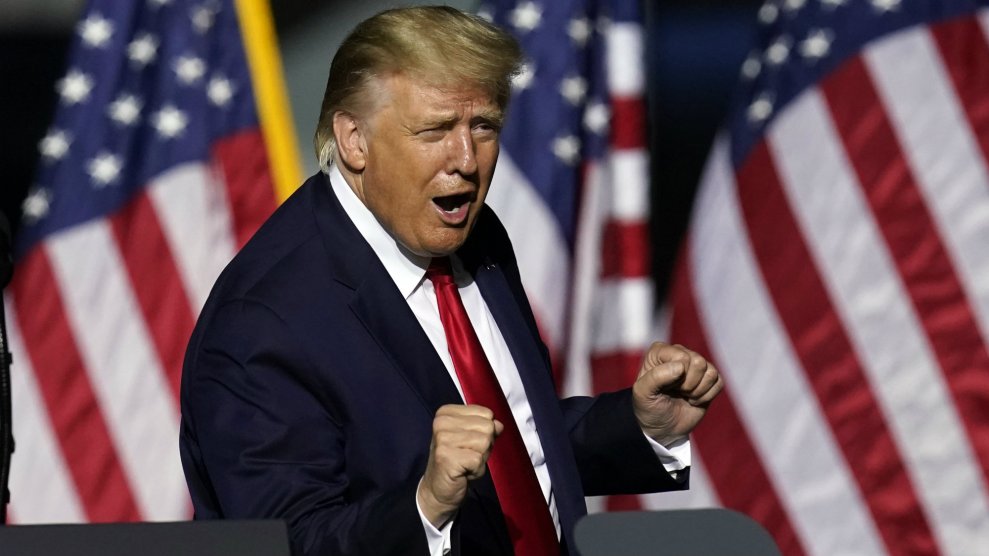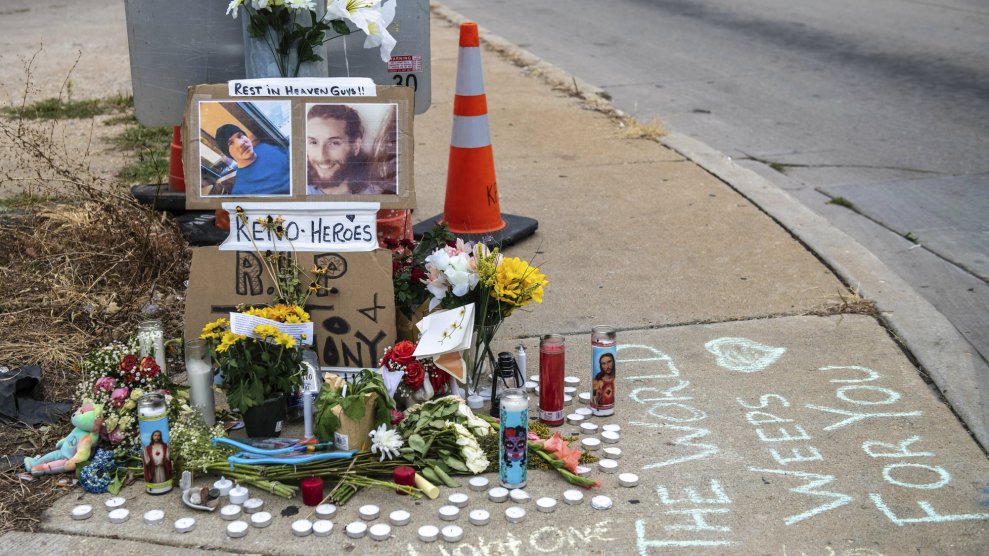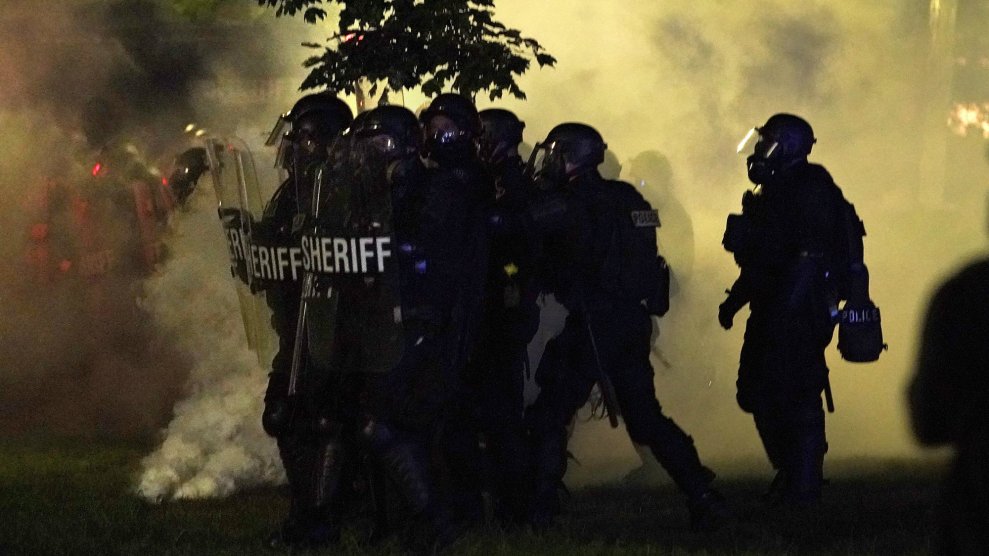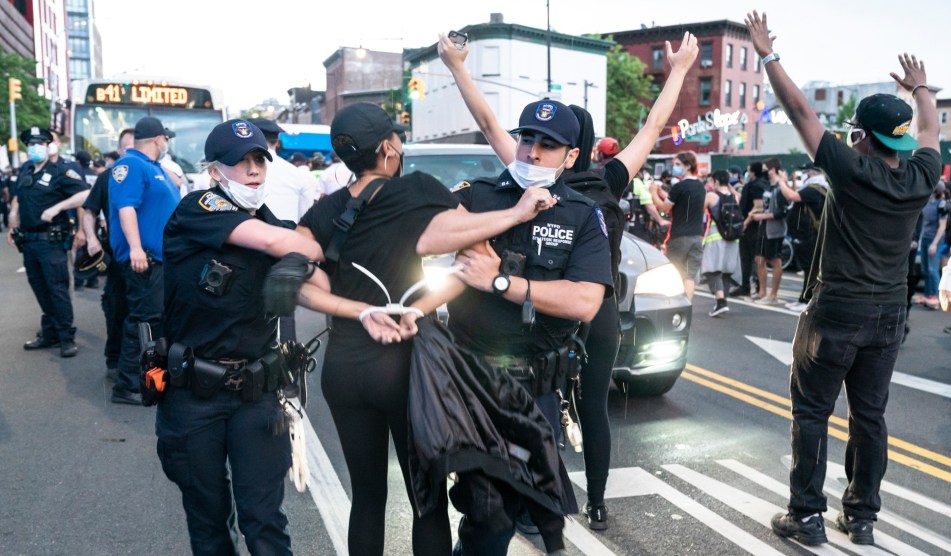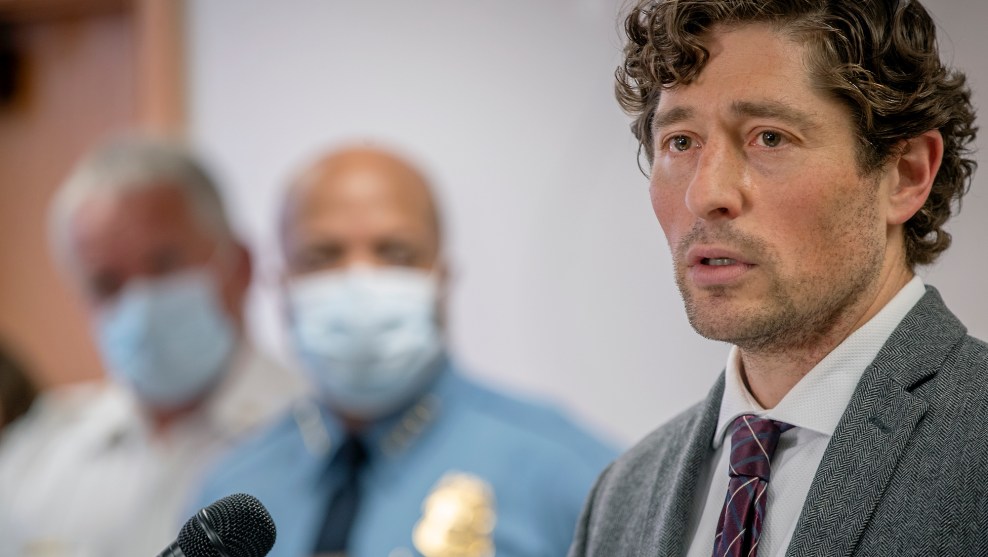
Minneapolis Mayor Jacob Frey, with MPD Chief Medaria Arradondo looking on. Elizabeth Flores/Star Tribune
After the federales showed, on Portland’s 55th consecutive day of rage, Mayor Ted came through. Mayor Ted Wheeler, alma maters Stanford, Harvard, Columbia MBA; author of Government that Works: Innovation in State and Local Government; imminent tear gas victim:
#Portland's mayor went downtown last night to address the demonstrators who have been protesting racial injustice and police brutality nightly for nearly two months now.
He was met by a chorus of boos … and later, tear gas. https://t.co/jvHL95zr2p
— OPB (@OPB) July 23, 2020
Wheeler bounced after the cops sprayed him, but it’s not as if he’d gotten a friendly reception from his civilian constituents, either. “How can you let your people get gassed out here every night?” the crowd yelled at him, even as he spoke out against federal goons in the city and qualified immunity for cops. If the heckling seems odd to you, keep in mind that it was this Ted Wheeler:
Portland's mayor and police chief defend Tuesday night's policing, while Commissioner Jo Ann Hardesty called reports of indiscriminate tear gas and flash bang use "completely unacceptable"https://t.co/778zIgUPpP
— OPB (@OPB) June 3, 2020
Who is also this Ted Wheeler:
Portland Mayor Ted Wheeler has hinted he might ban tear gas use by police. Instead, he's directing police to limit its use to situations that threaten "life safety" https://t.co/P53hlCB92N
— OPB (@OPB) June 6, 2020
And that this is the same Ted Wheeler who in June offered under 3 percent in budget cuts to the same Portland police force that brazenly thrashes unarmed kids and brown-noses Proud Boys.
We’ve witnessed this elsewhere. Around the US, liberal mayors in liberal cities are defying their citizenry in the streets, going to war on behalf of cops who loathe them, sometimes at the expense of their popularity.
In Minneapolis, there was the viral clip of protesters telling sweet, telegenic, Trudeauesque Mayor Frey to “go home, Jacob, go home!” They’d asked Frey, an erstwhile civil rights lawyer, to pledge to defund city cops. He declined. They sent him packing.
In New York, Bill de Blasio’s farcical denials of NYPD brutality outraged his own staff. “Who Will You Believe, de Blasio or Your Lying Eyes?” New York asked. (Human Rights Watch went with its lying eyes.)
In Philadelphia, where cops openly coddled white-power vigilantes, Democrat Jim Kenney said he’d add $19 million to Philly PD’s budget before retreating under fire. His city’s schools face a $38 million deficit. (Kenney had already overseen a 30 percent jump in Philadelphia’s police spending.)
Whom did Seattle Mayor Jenny Durkan blame as news of police atrocities spread like a grease fire? From my colleague Jacob Rosenberg:
Anarchists and opportunistic leftists, neither of whom were present, for instance, in this viral video showing cops smashing up a downtown storefront. It wasn’t an anarchist who maced a man trying to barge through a police line, nor was it an opportunistic leftist who “would throw a flash bang or tear gas just randomly into the crowd.” Those were cops.
A Seattle cop shown on video deliberately rolling his bike over a wounded protester’s head and neck has been put on leave https://t.co/DVOcyQKwCz
— The Daily Beast (@thedailybeast) September 25, 2020
In Washington, DC, NPR asked Mayor Muriel Bowser if she’d had second thoughts on raising the police budget.
“Not at all,” she said.
In Chicago, Lori Lightfoot raised the bridges to keep downtown protest-free, leveraging the city’s brutal legacy of apartheid. Even Richard Daley, a feudal mayor if there ever was, never tried moat-and-drawbridge segregation. Instead of coming downtown, Lightfoot suggested, protesters might try a moment of silence—the racial justice pause that refreshes.
All-blue city councils behind them, hours of footage in front: hundreds of unprovoked beatings and shootings on tape, the kind of proof prosecutors drool for in any other case.
These mayors deal daily with defunded schools, defunded hospitals, defunded transit, defunded arts. Policing’s budget share, generally one-third to half, leaves their towns fighting for scraps. Then add the externalities: billions in settlements, billions in overtime, children on life support. Tanks for school cops, tanks for townships, tanks for Mayberry.
The Moundsville Police Department has added a vehicle to the fleet! I’ll tell you everything this MRAP offers- and explain how the department get it for free- tonight on @WTOV9 pic.twitter.com/qveCV7X1i9
— Jaime Baker (@JBaker_WTOV) June 18, 2020
Why are Democratic mayors risking everything to defend the indefensible?
Let’s play SimCity. You won the race; you’re mayor. You’re an ambitious type who probably does want to help. But you’ve been in the big chair for a minute. You’ve burned hours and hours meeting with the rich, cutting ribbons for the rich, taking calls from the rich. You figured out by week 2 why your predecessors didn’t do the nice things they promised. You don’t answer to anyone whose first fear is the cops.
Yes, you could sub in a grab bag of psych professionals, social workers, EMTs, transit workers, firefighters, unarmed investigators, whatever. But that won’t cut it for the key funders of your town’s police foundation: Goldman Sachs, BlackRock, Wells Fargo, Amazon, Target, Walmart, Chevron, Coke. The rich don’t just oppose defunding. Like NCAA boosters, they fund their team directly. Police unions are vocal; this gang is not. But these are the constituents who keep police budgets safe—and who top them up.
The technically independent police foundations are tax-free operations, staffed by senior ex-cops, that donate surveillance cameras, rifles, and SWAT gear to local police departments. They’re a not-so-elaborate scheme to turn that cash (and Verizon’s, and Halliburton’s, and Facebook’s) into deep, loyal relationships. Why would Blackstone throw all that money at police? Can’t hurt that it’s Earth’s biggest landlord, a line of work that’s always counted on the badge for pandemic evictions, tenant disposal, color-line enforcement, and more. Call the #BlackLivesMatter LinkedIn posts icing on the cake.
These are familiar faces at your office. If Joe Billionaire has your ear and spends millions of his own on police, it doesn’t take a genius to figure out what he’s saying in those off-record City Hall sessions.
So you don’t feel pressure to make a real offer on cop budgets. The people demanding it pose no electoral threat. What are they going to do—vote Republican? You do not take them seriously. You are genuinely scared of urban revolt, but only from the folks who scare you. The ones at Goldman, BlackRock, Wells Fargo, Amazon, Target, Walmart, Chevron, Coke. (Google any of those names next to “mayor.”)
These are your friends—if you deliver. You know them well from their threats to leave town, nailing you to the wall for yet more tax breaks. And from your attempts at paying them to come over. And if they make your constituents a little, well, broke, or if their services cost more than you can afford, they’ve still got your loyalty (and pensions). When they get regulated, you’re right there to rail against it. If you’re lucky, they might hire you later.
And because you are basically sane, you don’t expect to win a race after making enemies of your most powerful constituents—from individual upper-middle-class homeowners up the chain to landowners, bank owners, business owners, business-owner owners, and “human capital stock” owners—by allowing or encouraging deep police cuts. The Democratic mayor who breaks that seal also breaks Democrats’ tenuous electoral bond between the rich and the rest.
Remember how Wisconsin Gov. Scott Walker groveled when a prankster posed as “Tea Party sugar daddy” David Koch? Your blue-city mayors can’t escape that dynamic; they, too, are behind-closed-doors grovelers.
You might challenge the very rich, in a limited way, on a few issues. But you see them, you know them, and you need them. You’re accountable to them, not the crowds. And you know they’ll react to an imposition—a bit of property tax, dash of integration, too much transit—by mounting a keener electoral threat than either police or their victims can muster. And they have unmistakable views on race.
In the 1950s, upper-middle-class white Texans ran a high-profile insurrection against the Social Security tax they now had to pay for “domestics.” These people called a payroll tax for cleaners—I swear this is true—“indentured servitude.” Similar efforts carried on for decades.
In the 1960s, a John Birch–backed white voter revolt assassinated California’s mild new fair housing law by a two-to-one margin.
In the 1970s, nearly likable Republican George Romney enraged suburban Michiganders by opposing segregation. But he couldn’t stop their bare-knuckled campaign against school integration, which led to the Supreme Court’s screeching U-turn on busing.
The rallies against pandemic safety, where I WANT A HAIRCUT mingled freely with ARBEIT MACHT FREI, are the latest poison fruit off that tree.
All of these movements were gleefully vindictive toward political opponents, happy to ax incumbents, had easy access to funding and friendly media; when white money goes to war, it does not fuck around.
Hence the push to blame police unions, an enemy Democrats can agree on. Lori Lightfoot, finger on the pulse of the white North Side, has cultivated a high-profile spat with Chicago’s Fraternal Order of Police. But it’s not the union Lightfoot’s scared of. With few exceptions, police unions already hate and oppose these mayors at every turn. If cops could unseat most blue-city mayors, there wouldn’t be many left.
The Minneapolis police union campaigned all-out against a Frey predecessor, the moderate Dem R.T. Rybak; Rybak beat the incumbent two-to-one, an unprecedented margin of victory. Police unions are hard-right institutions, and it really does limit their electoral power.
But mayors have every incentive to pretend it ain’t so. Who wins if you think the cop unions are that powerful? Who wants to be seen as well-meaning but stuck in an impossible bind?
Read it and weep:
What the bottom two-thirds of earners want has no impact on policy.
Most Americans back policies Fox would call “socialist.”
When the rich oppose a policy the rest of us want, they win about three-fourths of the time.
Police budgets grow with inequality. (From 1992 to 2010, as housing costs soared and safety nets shrank, guess what else rose? Spending on cops.)
Even the Economist concedes, “As inequality grows, so does the political influence of the rich.”
So police budgets grow with the political heft of the rich, which overpowers majorities. And almost all the truly rich live in blue cities.
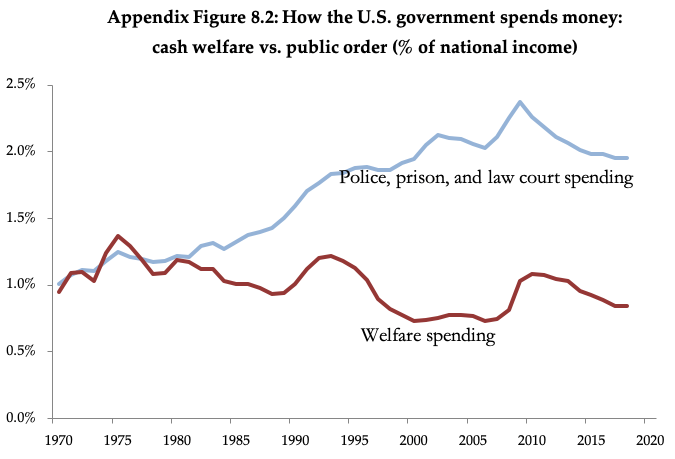
City Hall answers to white money, not its victims.
Emmanuel Saez and Gabriel Zucman, The Triumph of Injustice: How the Rich Dodge Taxes and How to Make Them Pay
That means, for mayors, that their police violence dodges translate into real risks avoided, real political capital preserved among the Ring doorbell class. Jacob Frey didn’t stare into that rally and see the people he usually answers to. Ted Wheeler dropped in, six weeks into Portland’s daily protests, after a critical mass of white moms arrived. He bailed after an hour—back to a crowd that simply does not vote on police brutality. They vote on what the Northwestern scholar Jeffrey Winters calls “wealth defense.”
That, Winters writes, is your mayor’s real tightrope walk:
If the rich are unarmed or do not rule directly, the armed state is the sole source of security.…The modern state—which is possible only if there is a separation between wealth holders and their capacity to engage in or hire violence for wealth defense—gains much of its legitimacy from the successful replacement of violence done by individuals with rule-bound coercion done by institutions.
No display of conforming behavior is more important to modern wealth defense than a respect for property, which during the rise of absolutist states fully metamorphosed from self-enforced claims to state-enforced rights.
This is why Frey said, in his inaugural address: “Yes, we must expect more accountability from our police. But we also need to expect more of ourselves.”
It’s why Frey described structural racism as “$31 billion of lost opportunity in our amazing market due to gaps between people of color and white people,” and said, “Any smart business person would agree that this would be an unacceptable loss.”
Nothing about redistribution or taxes. That’s not because of the police unions. It’s about who has the last word at City Hall. These protests, for Wheeler and Frey, de Blasio and Durkan, are crises of legitimacy: friction fires between their job description and their actual job. This is white money’s thumb on the scales of justice. Their only choice is polite omertà.
In New York City, when footage emerged of a police car mowing people over, Mayor Bill De Blasio said he was “not going to blame officers who are trying to deal with an absolutely impossible situation.”
In Nashville, Mayor John Cooper said vandalism “does not represent our city.” But he doesn’t feel the need to call out a SWAT team who lobbed explosives at reporters.
[Louisville police] shot a reporter with rubber bullets as she broadcast (for which they apologized) and fired tear gas before curfew into a crowd that “looked peaceful,” admitted a police official. None of that was deemed worthy of censure.
This is about negotiating in public. To stay credible, politicians have to tailor their reform offers to the degree of “legitimate” anger, to the public perception of what’s going on. They can’t afford to acknowledge the evidence because they can’t afford to act on it.
Those videos, reports, and broadcasts defy equivocation. They show methodical brutality against people who pose no threat. They give the lie to the “bad apples” line. They reveal that mayors do not directly control police. In other words, they call for change on a scale your most powerful neighbors just won’t accept. City Hall cannot bear very much reality.
And that’s what sleights-of-hand like Durkan’s and Frey’s are about. They’re about being able to say, when they defer and demur and preserve every core element of police power, that they’re not betraying the clearly expressed will of their constituents. Paint the protesters as rioters and looters, and fewer people mind when you don’t reform jack.
Look, this is the heart of the cop thing. John Jay liked to say that those who own the country ought to govern it; for most of history, they did. In early states, “a plunderer could become in effect the chief of police as soon as he regularized his ‘take,’” the historian Frederic Lane writes. That didn’t go out of style with chain mail. On the American frontier, Montana Territory sheriff Henry Plummer moonlighted as chief of the Innocents, a crew of killer highwaymen. Plummer began his career as a plain criminal, switching to vigilantism after police let him kill an escaped prisoner—and eventually took it professional. His successors just keep popping up.
England’s typical early sheriff, in the words of one history, was “a regional dictator with true executive authority,” whose office—a key forebear of modern police—was professionalized during the “consolidation of the gentry’s grip on local government.” From 700 to 1700, says Lane, “the most weighty single factor in most periods of growth, if any one factor has been most important, has been a reduction in the proportion of resources devoted to war and police.”
So we made a devil’s bargain: To get the rich to quit financing bandits, militias, and private armies—maybe even abide by some laws—early states had to subsidize property defense, big-time. Modern policing was born. The veneer of equal protection ain’t deep.
These individuals experience the height of privilege and are co-opting peaceful demonstrations that were organized by and meant to center people of color, particularly Black Americans.
— Mayor Jenny Durkan (@MayorJenny) May 31, 2020
You, the mayor, know this. You might not know the history, but you know whom you call to get things done: a mostly pale-faced posse of property developers, large business owners, old money, venture cap, corrupt bureaucrats, and machine bosses. People to whom these questions aren’t academic. The gang that literally owns the streets.
In the last decade, there has been just one good study on how mayors think. “When asked if cities should work to reduce income inequality,” it found, “a majority of mayors said ‘no.’” That includes a majority of Democrats. This, too, was true of both parties:
Overall, the mayors surveyed rated their relationships with their business communities, neighboring cities and their congressional delegation as positive. The relationship with federal government agencies and the state government were regarded as being more difficult.
You’d never guess from that how the feds and states ply mayors with cash. The late Ben Barber was the leading expert on mayors:
Benjamin Barber, the political theorist and author of “If Mayors Ruled the World,” is wildly biased in favor of de Blasio. He says he voted for him, has met with him to offer advice… For all that, Barber has not been swayed by de Blasio’s soaring rhetoric about reducing the gap between rich and poor.
City Hall has wised you up. You know the police unions will wither without cash, like every force in city politics. But you need constituents who see them as a rock in the road. To make a serious offer on defunding, you’d have to be more scared of your poor than your rich. You’re not.
The uprising, from Portland to New York to Louisville, has hardly paused since June. This is the US in the grip of democracy—a real contest for power, with all the fear and uncertainty that entails. Democracy crackles. It is not tidy or clean. But markets hate fear and uncertainty, and our electeds are tasked to avoid it. For you, the mayor, a little martial law is by far the better deal.
So impunity wears a badge.
A scene from Wheeler’s inauguration:
As he was preparing to speak, Wheeler was briefly interrupted by two protesters who rushed forward chanting, “Stop the sweeps, people are dying on the streets,” an apparent reference to sweeps of homeless camps. Wheeler did not mention them after they were quickly escorted outside by police. Nor did he refer to several other people in the crowd that held signs calling for a rent freeze during his talk. But he listed homelessness and housing affordability among the challenges he intends to address.
And then his speech kicked off, and Wheeler stood before his constituents and said: “Talk is cheap. Action is what matters. I know you’ll hold me accountable.”
He meant it. He just wasn’t talking to most of them.


